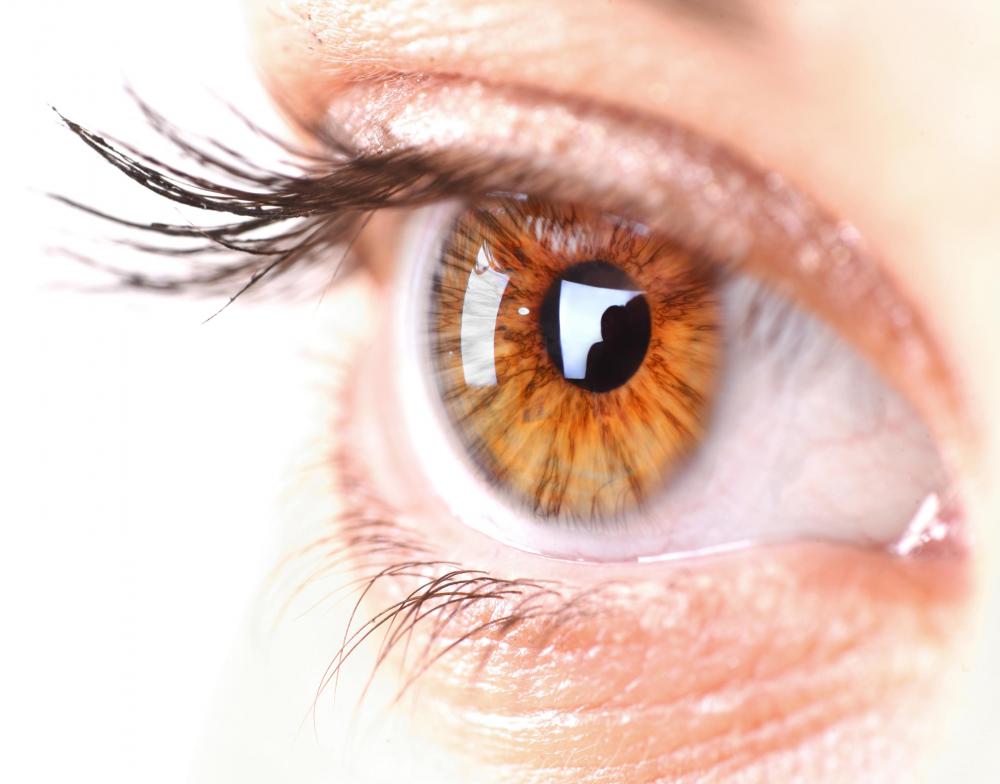At TheHealthBoard, we're committed to delivering accurate, trustworthy information. Our expert-authored content is rigorously fact-checked and sourced from credible authorities. Discover how we uphold the highest standards in providing you with reliable knowledge.
What are Exocrine Glands?
Exocrine glands are glands which produce secretions destined for the surface of an organ, as opposed to endocrine glands, which secrete compounds into the bloodstream. Some examples of these glands include the mammary glands, sweat glands, and saliva glands. Some glands are both endocrine and exocrine in nature, secreting hormones into the bloodstream along with compounds which reach the surface of the organ.
Some exocrine glands secrete directly, but more commonly, their secretions are routed through ducts, which may be simple or compound. Simple ducts consist of a single duct, while compound ducts branch out, providing more coverage. The ducts can also twist and turn in a variety of ways which create a number of subclassifications based on the shape of the duct. The shape of the ducts can be discerned clearly with the use of magnification, and sometimes tracers or dyes can be utilized to make the ducts more clear.

Some exocrine glands are classified as merocrine glands, in which intact cells produce secretions. By contrast, holocrine glands produce compounds by allowing their cells to break up to release the desired secretion, and apocrine glands release their cells along with the secretion, with cells budding off and being replaced as needed. These three types of glands appear in many different areas of the body, with each type having advantages and disadvantages that make it particularly suitable for specific applications.

The secretions produced by these glands can be broken into proteins and mucus. Some exocrine glands produce both proteins and mucus, depending on where they are located and what their function is. Mucus glands are classically used to create a layer of lubrication and protection for the body, while glands which secrete proteins can have a number of functions. For example, exocrine cells in the intestinal tract produce proteins which are used in digestion.

As with endocrine glands, the function of exocrine glands is critical to the overall health of the body. A number of techniques can be used to evaluate the function of these glands to determine whether or not they are working properly, and what the cause of failures might be. Damage to a gland can play a role, as can issues with cell signaling which lead to mixed or missed messages which confuse a gland or cause it to shut down. Synthetic versions of some of the secretions of the exocrine glands are available to make up for production problems, such as artificial tears to address problems with the tear glands.
AS FEATURED ON:
AS FEATURED ON:













Discussion Comments
My son is 10 years old and has never shed a tear in his life. Instead, he gets a very mottled appearance around his eyes. When I asked the doctor about it, he said "his eyes appear to be moist now, so we don't need to do anything about it until they start feeling like they are dry and or irritated". That has not yet happened.
When he plays outside or exercises, he also gets a very mottled appearance, and he over heats. I was never overly concerned about that until the last couple of days when I realized he is not sweating at all.
After I came to this realization, I started talking to him and he confirms that he never sweats! When he gets hot like that he runs water over his head to try and help him cool down! I intended to call his doctor tomorrow but, I was wondering what could be causing this and if it could be affecting other glands in his body! Thanks for any input in advance! --Sheri
Since our exocrine glands are so closely related to our hormones, I wonder how much this may affect a woman going through hormonal changes.
I have doing some reading on this, and it seems like our thyroid and adrenal hormones all play a role in how our body responds to these changes.
When a woman is going through hormone changes in her body such as pregnancy or menopause, I wonder if the exocrine glands work overtime?
I know when I was pregnant with both of my kids, my hormones were all over the place. I never thought about how my endocrine and exocrine glands may have also played a part in these changes.
I remember studying the difference between endocrine and exocrine glands in school. The main reason I was doing this was to pass the test for the class.
I never gave it much more thought until I started having a problem with my tear glands. They don't produce tears naturally like most people do.
This isn't really that big of a deal as long as I use the drops the doctor has prescribed for me. When my eyes get really dry and irritable, I know I haven't been consistent at using my drops.
I also notice when I am under a lot of stress that I have to use the drops more often. I find it interesting how something like our exocrine glands react to the amount of stress we are under.
Post your comments